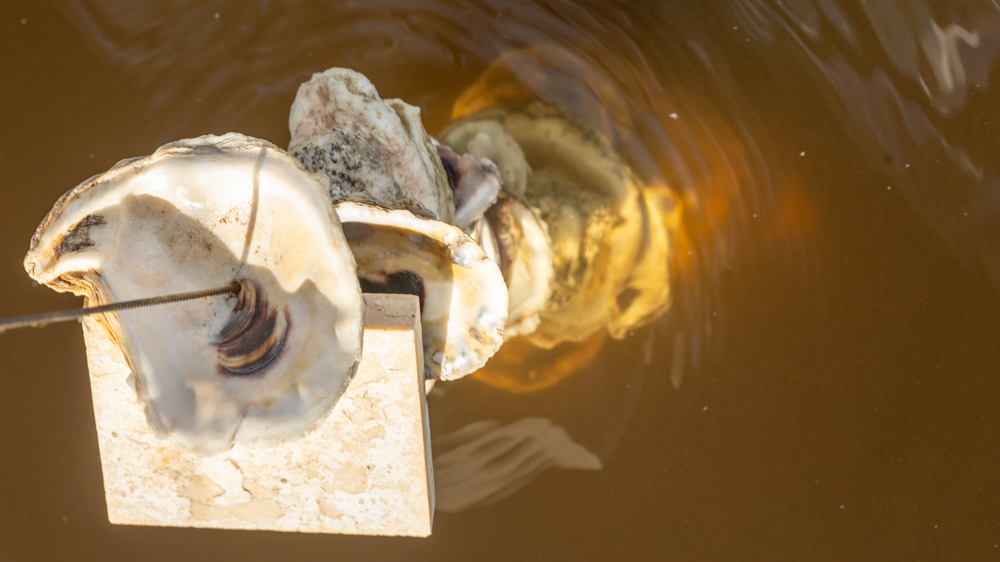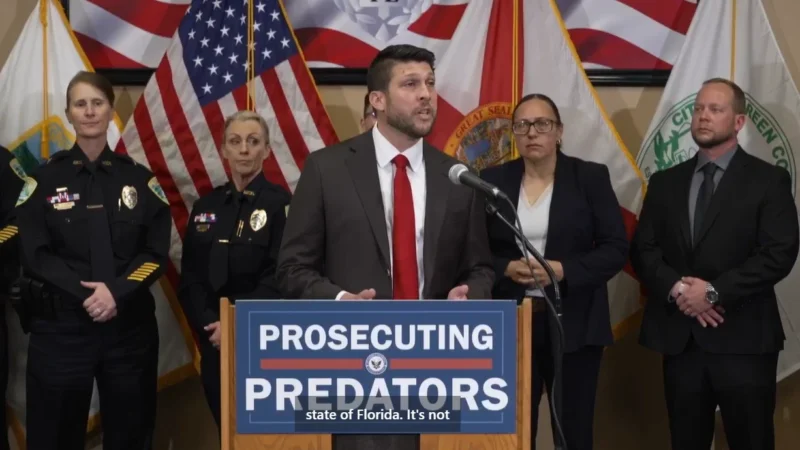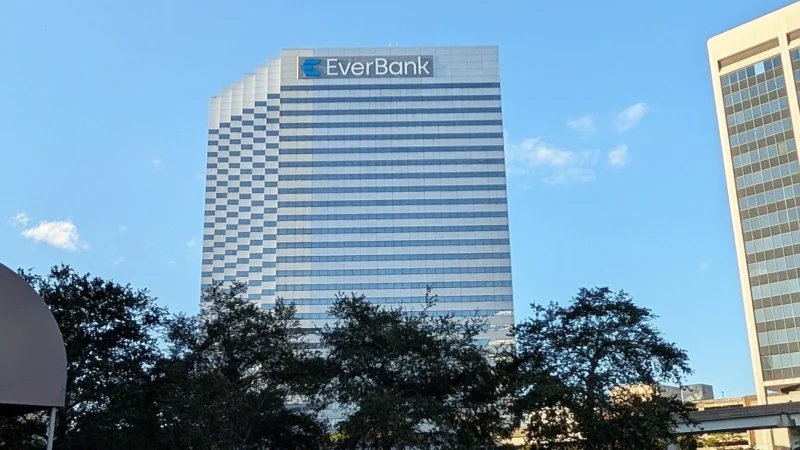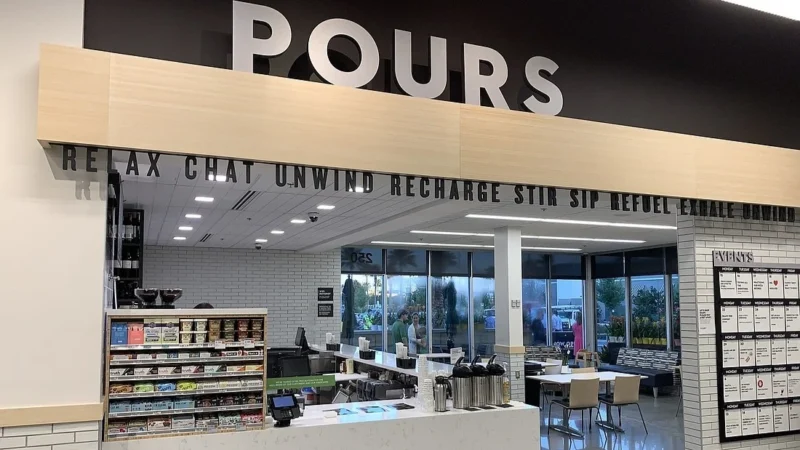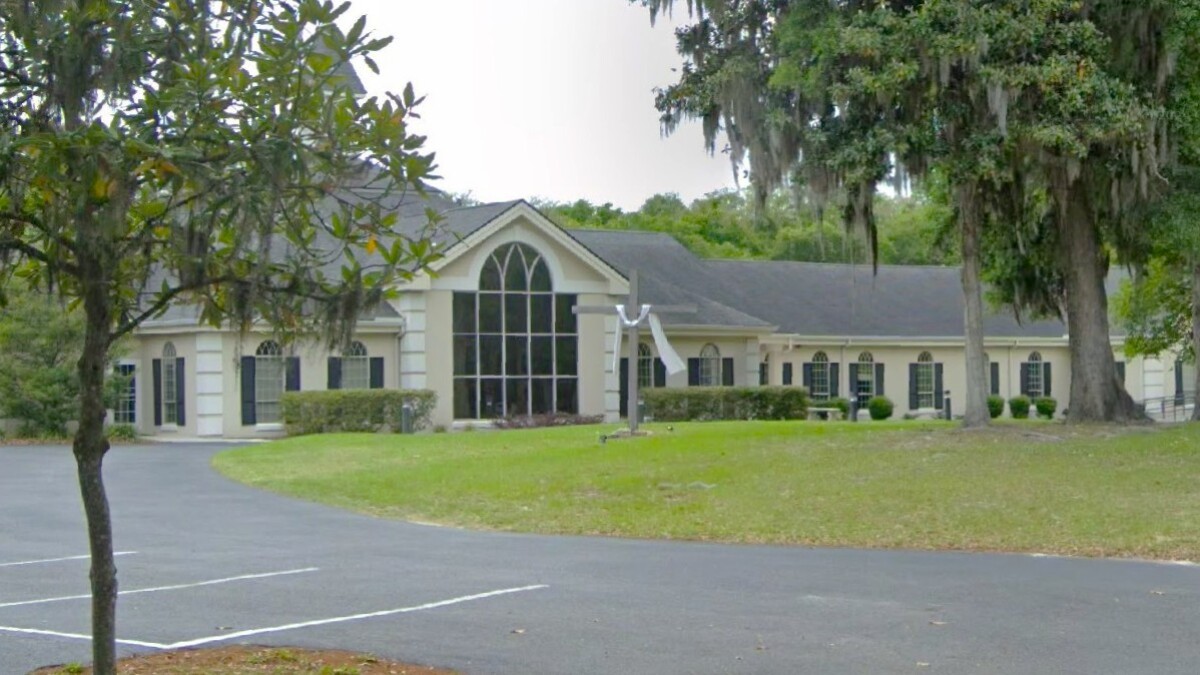A community festival has placed a spotlight on the effort to revitalize and restore an oft-neglected tributary of the St. Johns River.
OysterFest is five hours of music, food trucks, community engagement and more on Saturday at Riverview Park. The festivities may run from 11 a.m. until 4 p.m.; however, organizers hope it will serve as a community introduction to the park that is on the shore of the Trout River and tucked away off Lem Turner Road in Northwest Jacksonville.
A clear view of the river
According to an analysis conducted by Jacksonville University professor Ashley Johnson, the properties within the Trout and Ribaut River watershed are part of one of the most vulnerable regions in the country.
Wastewater treatment facilities, a prevalence of septic tanks, wild animal manure and stormwater runoff are responsible for high levels of fecal bacteria within the Ribault and Trout rivers.
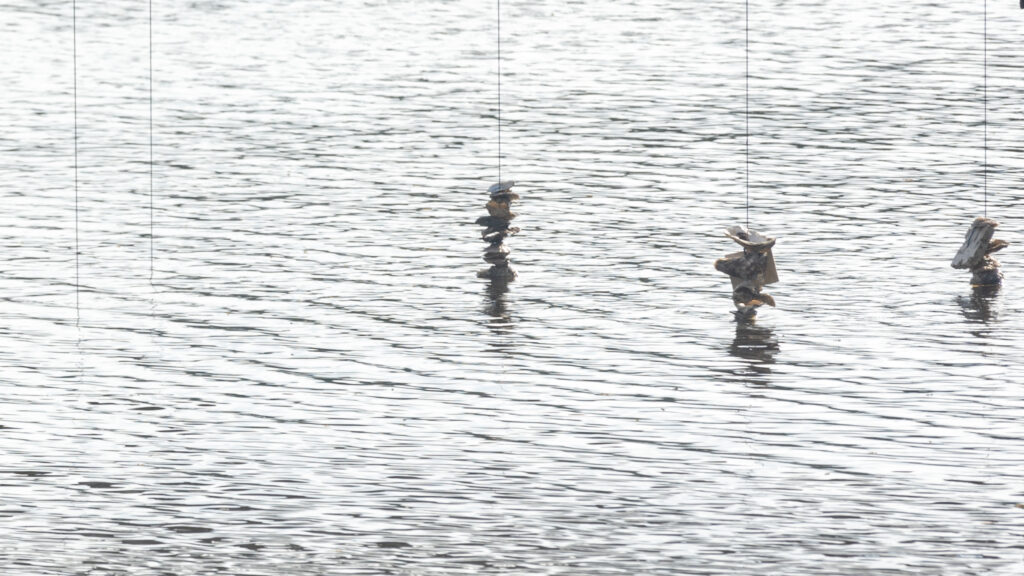
Earlier this spring, dozens of oyster gardens were placed near the shoreline and along the dock at Riverview Park in an attempt to help clean the water in the Trout River. The oysters were funded through a $20,000 grant from the Northeast Florida Environmental Conservation Fund.
The fund was established by the Public Trust for Conservation and the St. Johns Riverkeeper in 2022 to receive the dollars that companies and entities paid for Clean Water Act violations from stormwater runoff and other pollutants along the St. Johns River. The Community Foundation for Northeast Florida manages the fund and awarded its first grant this year.
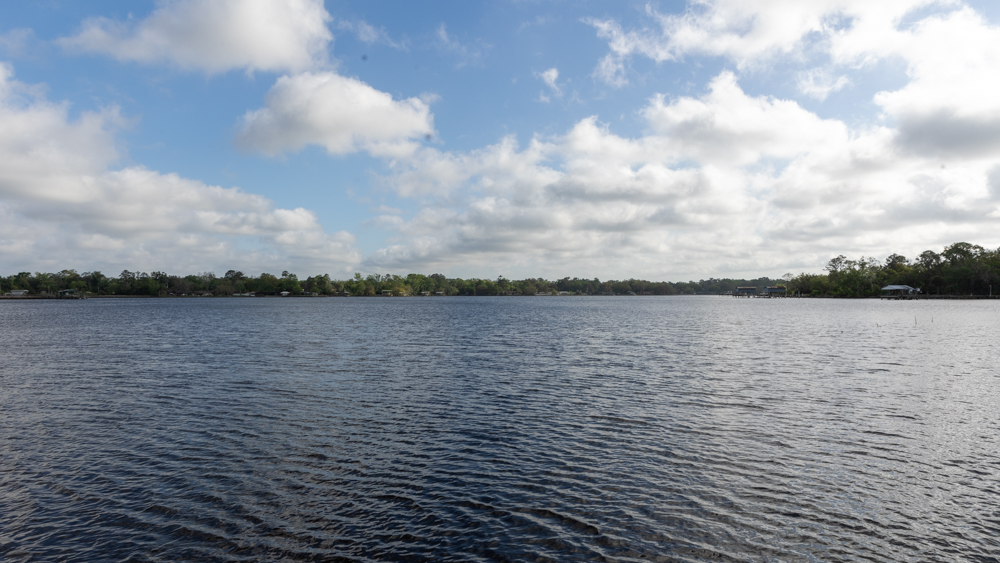
The Riverview Collective Community Organization is a nonprofit that was created late last year to facilitate relationships between the fund, the Riverkeeper and residents in the community.
Marshiray Wellington grew up in the Riverview community. Despite being able to see the Trout River from her front door as a child, Wellington says she did not come to appreciate the Trout River until adulthood.
Wellington, the chair of the Riverview Collective Community Organization, says this weekend’s OysterFest is an opportunity to ensure future generations do not have belated appreciation for the waterway.
“The goal is to create a living shoreline that’s going to protect the coast,” Wellington says. “What’s happening over time is there is an area close to the water where the water is encroaching. We are working with the city (of Jacksonville) to (help) evolve into a wetland area. The oysters are protecting the grasses that will grow and in turn protect the coastline.”
Where is Riverview?
Riverview was planned as an early 20th century suburb 5 miles north of Downtown that was exclusively for white people. Through the decades the demographics changed. Today, the census tract where Riverview Park is located is 71.8% Black and 20.4% white.
It’s a community where retired welders, corporate executives and Realtors live among neighbors who seek to break through generational poverty.
According to The Jaxson, the site of Riverview Park was originally the site of Dr. E.H. Armstrong’s Riverview Tropical Gardens.
By the 1950s, it had become Sid Walker’s Riverview Amusement Park, featuring a roller rink called Stake-O-Rama, rides, restaurants, a swimming pool, picnic areas and more.
In 1959, much of this space was redeveloped into a shopping center that was anchored by a Kmart. Roses Discount Store replaced Kmart in 2011. The wooded area along the Trout River remains one of the most secluded public green spaces within the urban core.
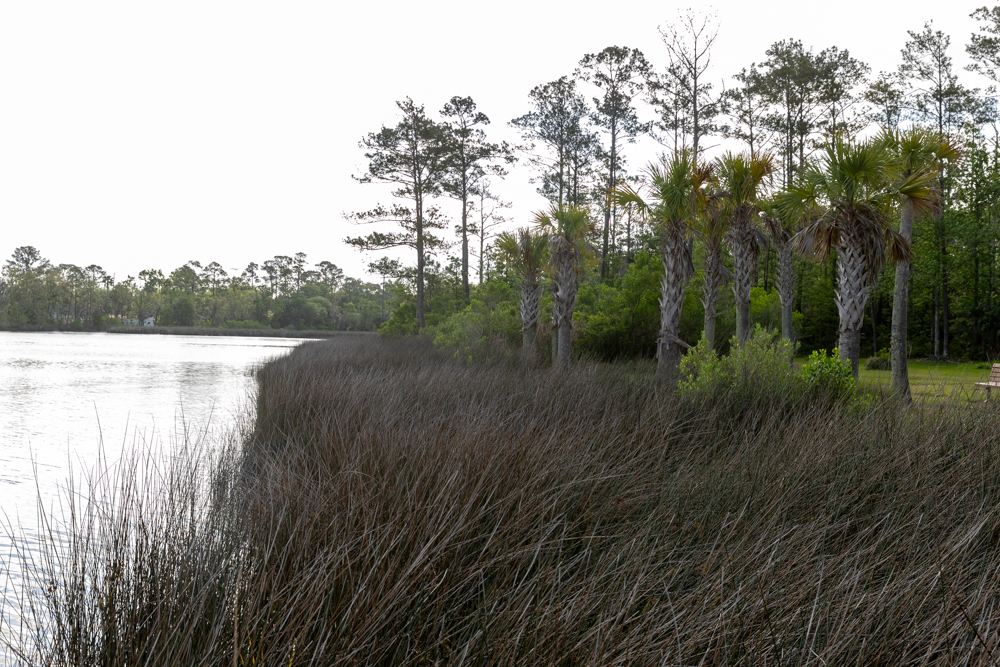
Today, Riverview Park is a place where one can see the pine trees sway in the springtime breeze and birds form a chorus of song. The smell of the brackish water is a reminder that the Trout River is a tributary of a 310-mile river that has a watershed of more than 9,000 square miles.
Reinvestment in resilience
The St. Johns Riverkeeper and LISC Jacksonville launched Resilient Ribault in 2023 in an attempt to address the challenges facing the Ribault River, Trout River and Moncrief Creek watersheds. The goal was to alleviate the flooding and pollution problems in the watershed as well as address socioeconomic factors that may lead residents within the watershed of the Northwest Jacksonville waterways to better appreciate the national resource.
Since it launched Resilient Ribault, St. Johns Riverkeeper Executive Director Jimmy Orth has led more than a dozen boat trips along the Ribault River to provide a different vantage point for waterway and its importance.
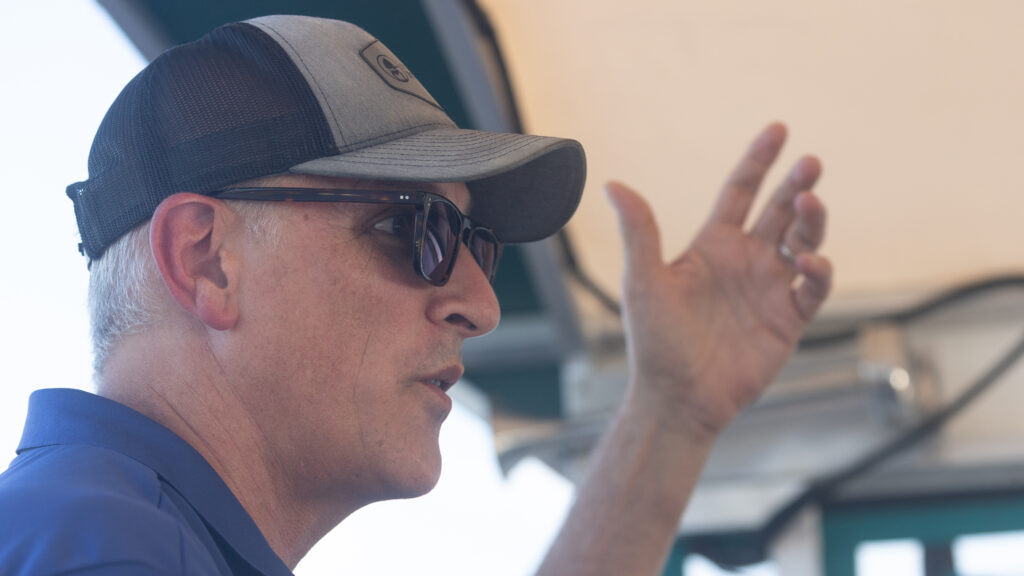
“A single oyster can filter up to 50 gallons of water a day. By providing habitat for oysters to grow, this project will help to improve water quality and demonstrate the benefits of nature-based solutions,” Orth says in a statement. “They’re a simple and effective tool for growing natural oyster reefs and enhancing our waterways.”
Uncovering a hidden gem
Irvin “PeDro” Cohen grew up in Northwest Jacksonville in Washington Estates. He had close friends whose parents lived along the Ribault River, and none of them saw the benefit of the waterway at the time.
“It was always in a state of disrepair,” recalls Cohen, who is the current executive director of LISC Jacksonville. “What we’ve been able to do is help (Riverview residents) understand what the river represents as an asset. You can’t get the justice until you find the value in it.”
READ MORE: A novel tool to fight erosion: oyster shells
Cohen says LISC Jacksonville came to see the benefit of protecting the Ribault and Trout rivers after noticing how many properties in Northwest Jacksonville were at risk of being lost through tax liens or unclear estate planning.
When Hurricane Irma swept through Jacksonville in 2017, it illuminated how many people within the Ribault and Trout river watersheds lived in properties but did not own them outright. Homes would be passed through the generations due to a “family understanding” that was commonplace in Black communities.
However, when Irma led the Trout River to flood large portions of Riverview and other Northwest Jacksonville neighborhoods, it illuminated the issue with a verbal understanding that may, or may not, have been recorded with the Property Appraiser’s Office.
“You’re not able to draw down FEMA resources if you can’t prove ownership of the house,” Cohen says. “What we are doing with heirs property is we are coming up with policy that will allow (proof of homeownership) to happen.”
Community enlightenment
During OysterFest, the First Coast Association of Realtists will provide workshops on estate planning, credit restoration and homeownership process inside the Riverview Community Center.
Realtists are members of the National Association of Real Estate Brokers, a real estate trade organization similar to the National Association of Realtors. However, the National Association of Real Estate Brokers never excluded membership on the basis of race, as the Realtors did for decades.
Felecia Mitchell is a real estate agent who has lived in Riverview since 2009. She lives on the shore of the Ribault River and serves on the board of the community collective.
She says OysterFest is the first of many initiatives aimed to provide educational resources for Riverview residents and advocate for a healthier and sustainable environment in the community.
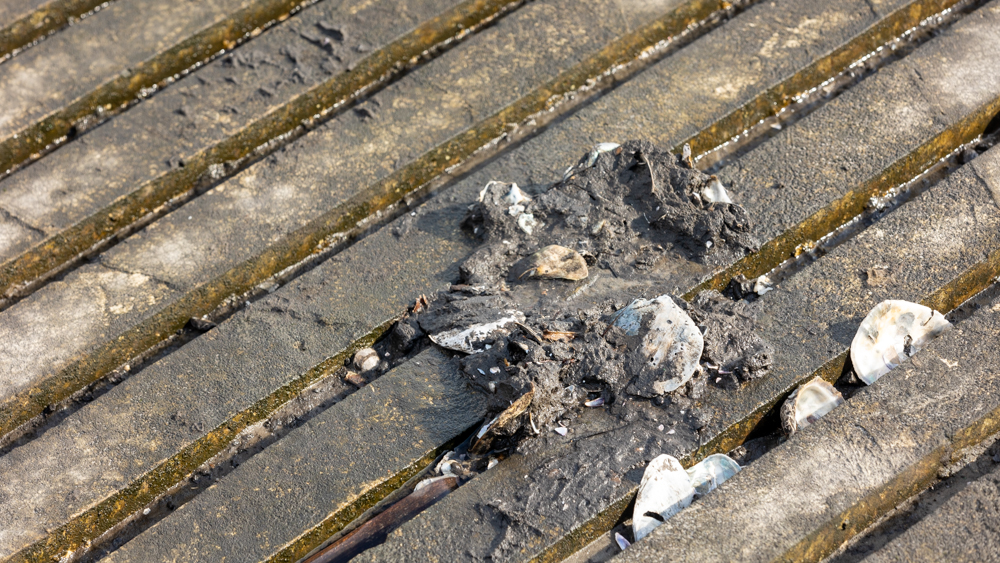
Mitchell grew up in the nearby Lake Forest neighborhood. She recalled visiting the Kmart at the corner of Lem Turner and Soutel with her mother and infrequent visits to Riverview Park.
Mitchell says she did not know how beneficial oysters were to a waterway before the St. Johns Riverkeeper informed her. The recycled oyster shells that the Riverkeeper and others deployed along docks and near the shore will attract other, inedible oysters. Once those mollusks have found homes, it will improve the quality of a waterway that has a higher percentage of fecal bacteria in the water than Florida Department of Environmental Protection regulation.
OysterFest is an opportunity for Riverview residents to have similar enlightening moments.
“It’s something that is definitely needed,” Mitchell says. “I’m excited to be on this journey and see how everything is going to play out. I can see in the next few years, we are going to see a significant difference in our waterways here and improvement in our neighborhood.”



